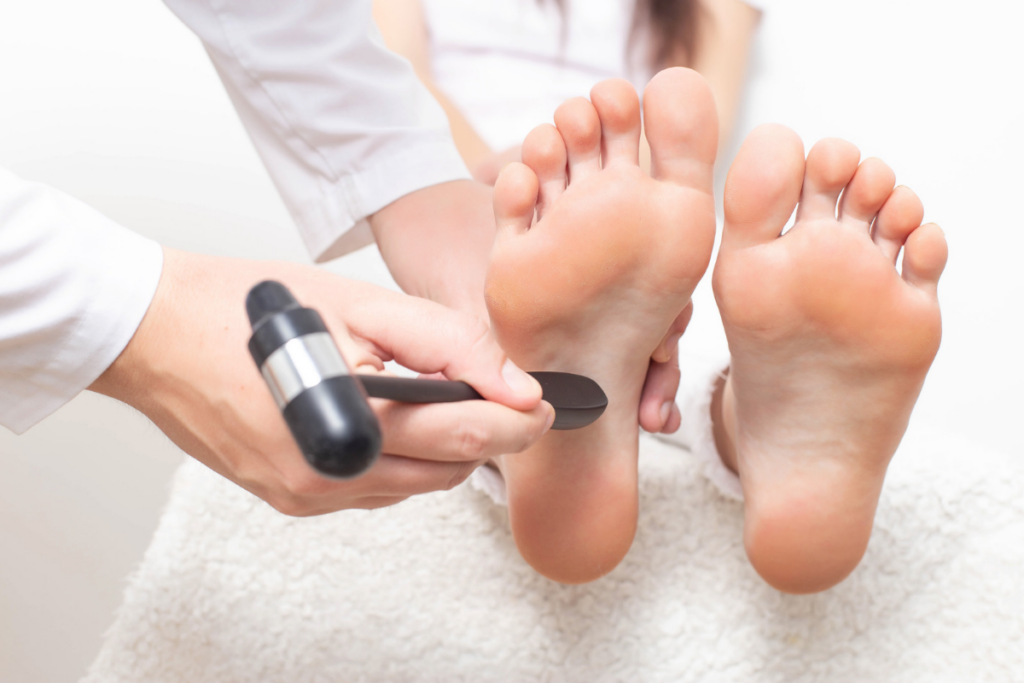Services

At initial visit, you will be seen by a pain-trained general practitioner who will take your history, do a thorough physical examination, and review all your test results. She will then work with you to develop an effective pain management strategy. This strategy will likely involve pain neuroscience education, lifestyle changes, addressing associated psychological and social difficulties you may have, movement and medication. If specialist procedures such as surgery or nerve blocks is indicated, she will arrange the pre-referral investigations and discuss your presentation and management with the appropriate specialist. She may involve other members of the multidisciplinary team into your care – this may include a physiotherapist, occupational therapist, dietitian, or psychologist.
Specific services that are available through the George Pain Centre include medication optimisation, trigger point injections and intravenous infusions. We are also able to assist with psychiatric management.
Medication management
Medication for acute pain management often does not work for chronic pain. This is because the mechanism of pain is different. Analgesics and anti-inflammatories tend to work well for pain when the cause is tissue damage. If these medications do not work, then it often means that the pain is not caused by tissue damage but rather by a different mechanism such as central sensitisation or neuropathic pain. Central sensitisation is a neurological process involving your central nervous system that causes pain to be amplified biologically, or sometimes felt even without tissue damage. Neuropathic pain is caused by pathology in the peripheral nerves and can be challenging to treat. Medications that can be useful in such cases include certain serotonergic medications and antiepileptic medications that stabilise the nervous system.
Trigger point injections
Trigger point injections are a type of treatment that can reduce muscle pain and spasms caused by knots of muscle fibers called trigger points. These trigger points can form after injury, overuse, or stress and can cause pain in other parts of the body as well. Trigger point injections involve injecting a local anesthetic, a steroid, or botulinum toxin into the trigger point to relax the muscle and block the pain signals. This procedure is usually quick and safe, and can provide immediate relief for many people with myofascial pain syndrome.
Intravenous infusions
Intravenous infusions are an option for people who suffer with specific pain conditions and individuals with treatment-resistant mental health conditions such as depression, anxiety, post-traumatic stress disorder (PTSD), suicidal thoughts. Certain intravenous medications are able to help reset the brain’s chemical balance and reduce the perception of pain and negative emotions. This service is only offered to individuals who meet specific evidence-based criteria, which is in alignment with recognised international and national guidelines.
GP services
General practitioners are your primary care providers, your first point of contact in the private sector health system, and who walk with you throughout your medical journey. They get to know you and your preferences, they back you when you need specialist services and assist you to get funding for needed treatments from your medical aid. The full range of general practitioner services are available at the George Pain Centre. This includes the diagnosis and treatment of a wide range of medical conditions, including non-pain-related conditions. Acute and chronic disease management, preventative care, health advice, and routine wellness visits are offered. Medical aid rates are charged for a GP consultation.
Psychiatry & psychology services
Mental health management plays a crucial role in chronic pain treatment, as pain often co-occurs with mental health conditions such as depression, anxiety, and post-traumatic stress disorder (PTSD). Even in the absence of co-occuring mental health conditions, psychiatric and/or psychological assessment can help to identify psychosocial and biological precipitants and perpetuators of your pain which may be preventing you from becoming pain-free, e.g. underlying risk factors for central sensitisation. Psychiatric interventions include the use of medications such as antidepressants, psychoeducation, psychotherapy, lifestyle changes and behavioural strategies. Psychological therapies such as acceptance and committment therapy, cognitive-behavioural therapy and pain-reprocessing therapy are evidence-based strategies that are proven to reduce pain.
GET IN TOUCH
